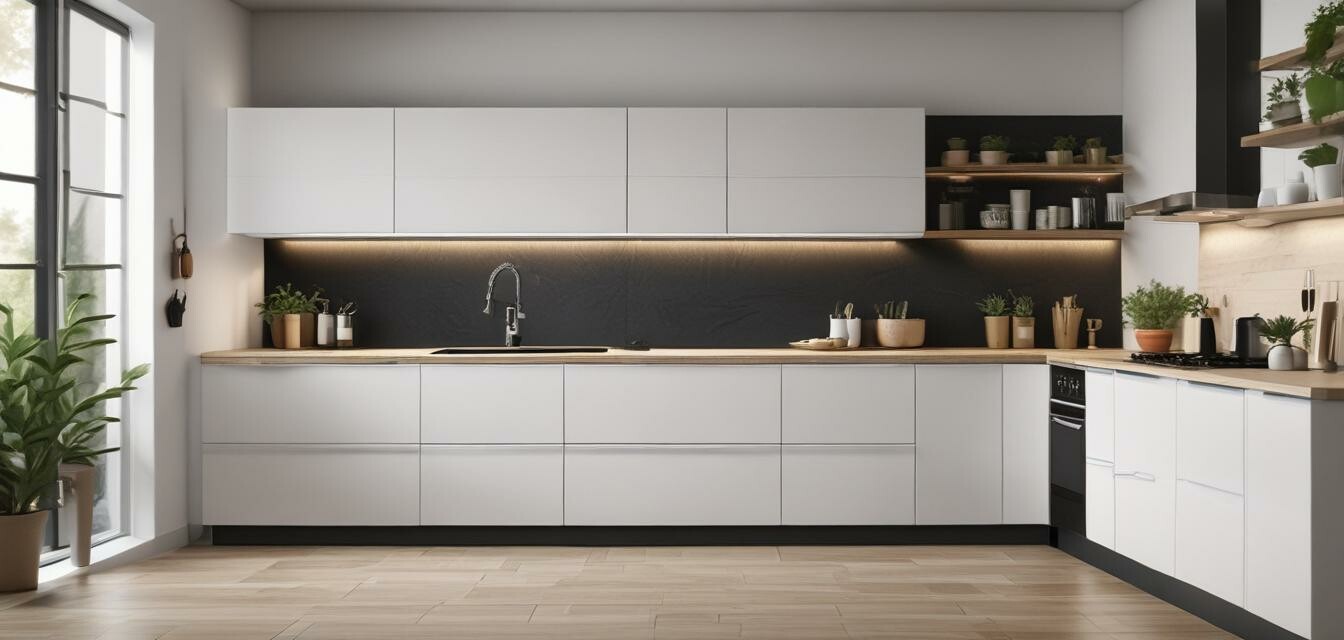
Kitchen Tech for Eco-Conscious Cooking
Key Takeaways
- Eco-conscious cooking merges technology and sustainability.
- Key sustainable kitchen technologies include energy-efficient appliances, smart features, and water-saving devices.
- Investing in eco-friendly kitchen technologies can reduce energy and water consumption.
- Modern kitchens leverage intuitive controls for better resource management.
- Staying informed about trends in kitchen technology helps make sustainable choices when upgrading appliances.
As the world becomes increasingly aware of environmental concerns, the demand for eco-conscious kitchen technology has surged. This article explores the various innovative technologies that promote sustainable cooking practices while also providing comfort and convenience in the kitchen. Read on to discover how you can transform your kitchen to become more eco-friendly without compromising on style or function.
Understanding Eco-Conscious Cooking
Eco-conscious cooking is all about making choices that benefit the environment. It encompasses various practices, from using locally sourced ingredients to implementing energy-saving technologies in the kitchen. By adopting modern kitchen technology, homeowners can significantly reduce waste, save energy, and create a healthier home cooking environment.
1. The rise of energy-efficient appliances
Energy-efficient appliances are designed to use less power while delivering the same performance as their traditional counterparts. These innovative appliances not only help lower utility bills but also reduce the overall carbon footprint of your household.
| Appliance Type | Energy-Efficient Features |
|---|---|
| Ovens | Self-cleaning settings, induction heating, precise temperature control |
| Refrigerators | Smart cooling technology, energy-saving modes, LED lighting |
| Dishwashers | Eco-friendly wash cycles, energy-efficient drying, adjustable racks |
2. Smart technology integration
Smart kitchen technology allows homeowners to monitor and control appliances remotely, which can lead to more efficient resource management. With smart devices, you can track energy usage, set timers, and even receive alerts about maintenance needs.
One popular feature is the ability to adjust appliance settings via smartphone apps. This empowers users to optimize energy use while ensuring their meals are cooked perfectly. To explore more about integrating smart technology into your kitchen, check out our section on smart kitchen buying guides.
3. Water-saving devices
Water conservation is a crucial aspect of eco-conscious cooking. Modern kitchens are utilizing technologies to reduce water usage without sacrificing performance. Touchless faucets, for example, help minimize water waste during food preparation and cleaning.
Examples of water-saving technologies in the kitchen:
- Low-flow faucets
- Smart irrigation systems for gardens
- Eco-friendly dishwashers with water-efficient cycles
Trends Shaping the Future of Eco-Conscious Cooking
Keeping up with the latest trends in kitchen technology can help consumers make informed choices that align with their sustainability goals. Here are a few key trends:
Pros
- Reduced energy and water costs.
- Lower carbon footprint.
- Enhanced cooking efficiency and convenience.
- Increased home value through smart upgrades.
Cons
- Initial investment can be high.
- Some technologies may require frequent updates.
- Learning curve for new smart devices.
4. Minimalist designs and multifunctional devices
Minimalism is becoming a popular design trend in modern kitchens. Many eco-conscious consumers are opting for sleek and multifunctional appliances that save space and reduce clutter. These designs not only look stylish, but they also contribute to efficient cooking practices.
5. The importance of sustainable materials
In addition to technology, kitchen sustainability is also about the materials used. Opting for eco-friendly materials like bamboo, recycled plastics, and sustainable metals helps create a more sustainable kitchen environment. To learn more about selecting sustainable materials for your kitchen redesign, check our blog on kitchen appliance trends.
Making the Switch
As you consider upgrading your kitchen, focus on strategies that promote sustainability:
- Prioritize energy-efficient and eco-friendly appliances.
- Incorporate smart technology for better resource management.
- Invest in water-saving devices to reduce water waste.
- Choose multifunctional appliances that enhance cooking efficiency.
- Be mindful of the materials used in your kitchen design.
Conclusion
Embracing eco-conscious cooking through innovative technologies not only helps the environment but also improves the overall cooking experience in your home. As you explore the market for new appliances, keep in mind the importance of sustainability and how small changes can make a big difference. Investing in energy-efficient, smart, and multifunctional kitchen tech is a step towards a more eco-friendly and efficient kitchen.